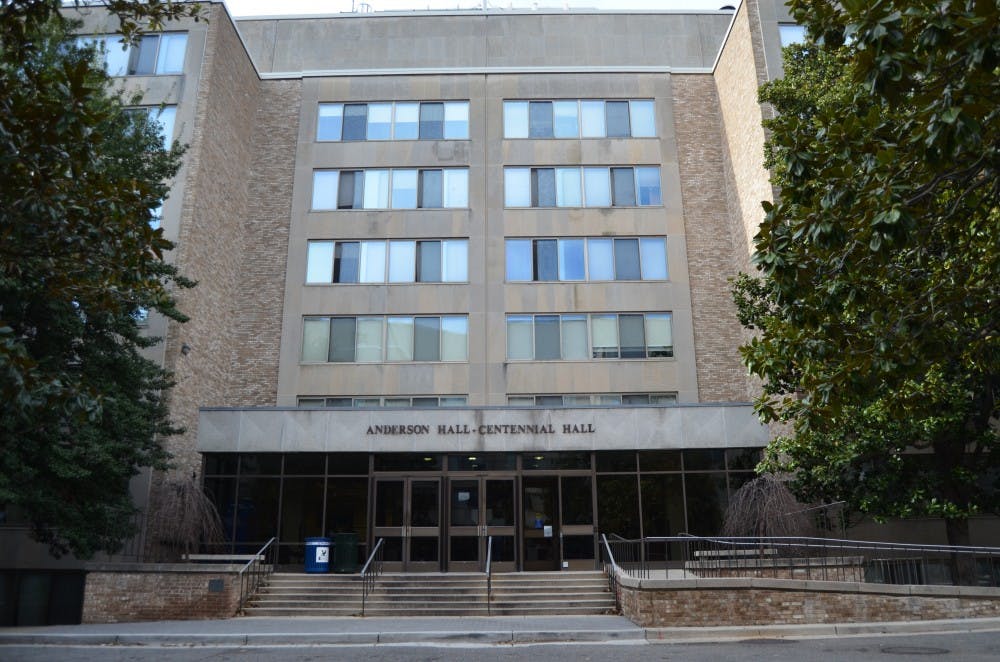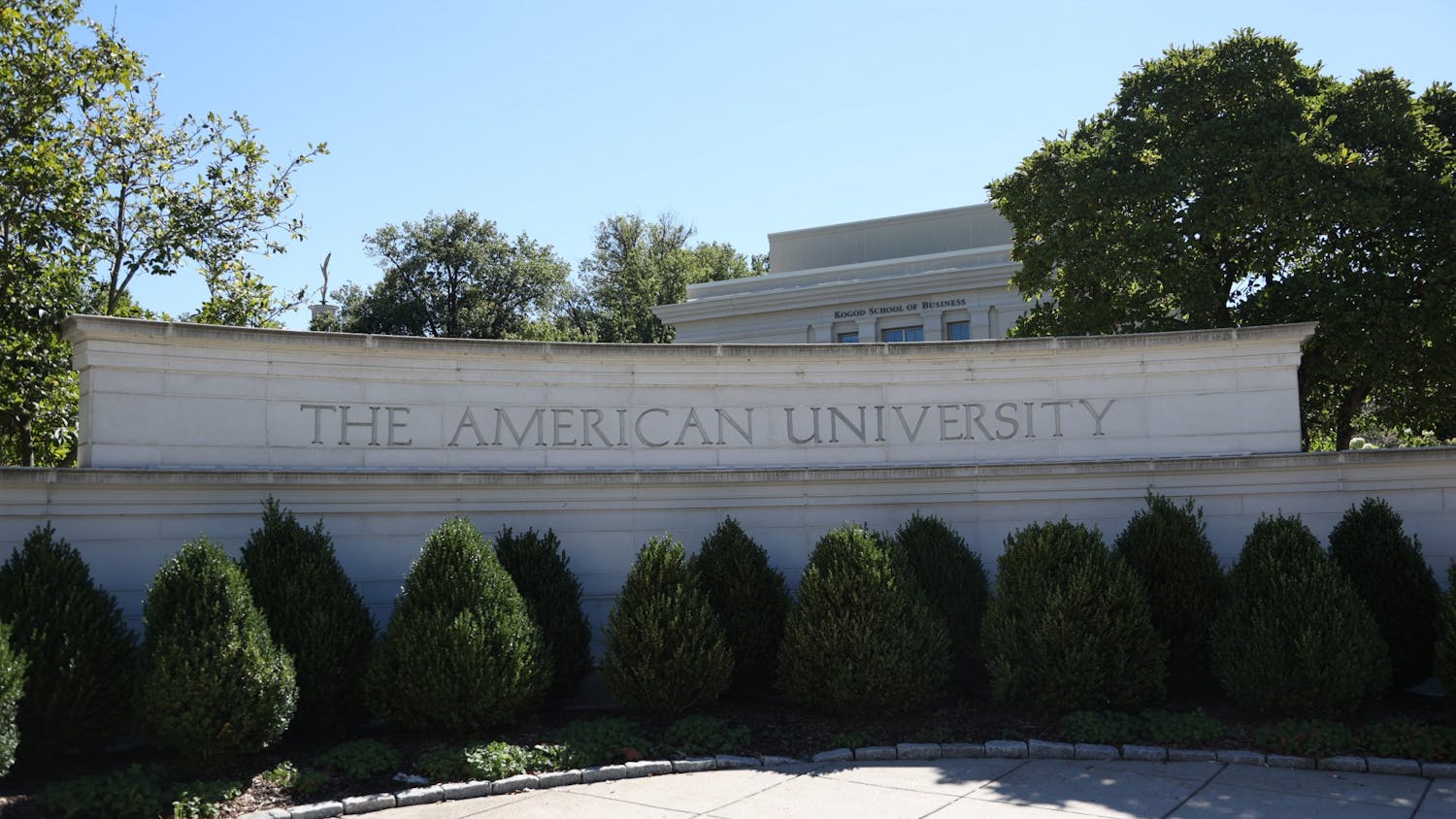Videos of a white American University student saying the n-word have spread rapidly on social media, leading to outrage from the student body and an apology from the student.
Aise O’Neil, a first-year student studying economics, was filmed saying the word in a communal lounge in Anderson Hall on Saturday night. A video of O’Neil, posted on Twitter the same night by freshman Tasneem Osman, quickly went viral among AU students and alumni, garnering over 22,000 views by 10 p.m. Sunday. Osman did not immediately respond to multiple requests for comment.
“This is why I don’t feel welcomed at American University,” Osman wrote in her caption of the video, in which O’Neil says the word and gives his full name.
The University’s official Twitter account responded to Osman’s tweet at 3:40 a.m. Sunday, about six hours after the original video was posted.
“AU does not condone the use of a racist term associated with discrimination and violence,” the tweet read. “We recognize the harm this can cause in our community. We will work with all concerned to understand what happened and to recognize that freedom of expression comes with responsibility.”
Fanta Aw, the University’s vice president of campus life and inclusive excellence, wrote in an email to students Sunday night that O’Neil “used a racist term in the context of a discussion among students about language and freedom of expression.”
“One of the students who was in the discussion posted part of the exchange in a video on Twitter, along with their concerns,” Aw wrote. “The university responded to the tweet and video. We do not condone the use of racist language. We recognize the harmful impact.”
Aw added that the University’s next steps regarding the incident will be guided by the student code of conduct and other “restorative processes.”
“These situations challenge our community and are painful,” she wrote. “We remain committed to building an inclusive community where every member feels valued and is treated with respect and dignity.”
In a statement sent to The Eagle Sunday evening, O’Neil said that the video came about as part of a dare by some other students in Anderson. He said that in his first two weeks at AU, he said the n-word “very loudly” in his dorm room after being upset by “how censorial the campus environment was.”
“I don’t know exactly why I did this, I think I just wanted to do something to feel as if I still had the freedom to express myself,” O’Neil wrote. “My next door neighbor overheard me then.”
The neighbor and two of her friends, who O’Neil declined to name, approached him on Saturday as he sat in the dorm lounge to talk about his usage of the word, O’Neil said.
“I argued that there was nothing inherently wrong with the usage of my words,” he wrote. “I was dared to say the word on video. Believing that a refusal would in a sense be a betrayal of my principles I obliged.”
Prior to the release of the video, O’Neil believed that while the n-word is “more likely than most words to be used in some sort of racist comment,” the usage of the word is not “inherently racist.”
However, the vast majority of history and language professors argue otherwise. Neal A. Lester, a professor at Arizona State University who taught the first-ever college course designed to explore the history and meaning of the n-word, said in a 2011 interview that as early as the 17th century, the word was designed to be “intentionally derogatory.”
“The poison is still there,” Lester said. “The word is inextricably linked with violence and brutality on black psyches and derogatory aspersions cast on black bodies. No degree of appropriating can rid it of that bloodsoaked history.”
O’Neil said he now understands that his views on the word were “somewhat misguided.”
“I did not anticipate the video would reach such wide circulation,” O’Neil said. “I am very sorry to the people I upset. I genuinely regret what I have done.”
Students spoke out on social media about how the video was reminiscent of their own experiences with racism on campus. Keylia Carter, a sophomore, wrote on Twitter about a similar experience she had with a white male student her freshman year.
“It’s hurtful and AU sweeps it under the [rug] and never deals with anything like this,” Carter said in a message, adding that she would like to see a public apology from AU and O’Neil.
Other students, including freshman Coura Fall, wrote on Twitter that they were not shocked nor surprised by the video.
The executive board for AU’s Residence Hall Association also released a statement on Sunday, noting that the incident took place in a residence hall.
“But even if it did not, it would still be wrong, and we would still feel obligated to comment,” the statement said. “There is no circumstance in which white people should say the n-word, and we condemn its use in the strongest terms.”
University officials continue to respond to the incident. In an email obtained by The Eagle, Lisa Freeman, the director of residence life, wrote to students who work for the department that two top residence life officials have met with students who were directly involved to “provide support.” Freeman did not immediately respond to an email requesting further comment.
“This incident has impacted members in our community and we will continue to offer support however it is needed,” Freeman wrote.
O’Neil said he met with two residence life staff members on Sunday to discuss the incident and the possibility of changing housing assignments. They will have another meeting soon, he added.
In the day since the video went live, O’Neil, who has performed stand-up comedy in the D.C. region, was removed from the lineup for an upcoming show at Tenley Bar & Grill after organizers learned of the video.
O’Neil said he has also been on the receiving end of comments like “hey racist” and “you better watch out.” He anticipates further comments in his classes.
“I suspect AUx and my women in comedy class will give me some trouble later this week,” O’Neil said.
This story is developing and may be edited in the future to include more details and updates.





